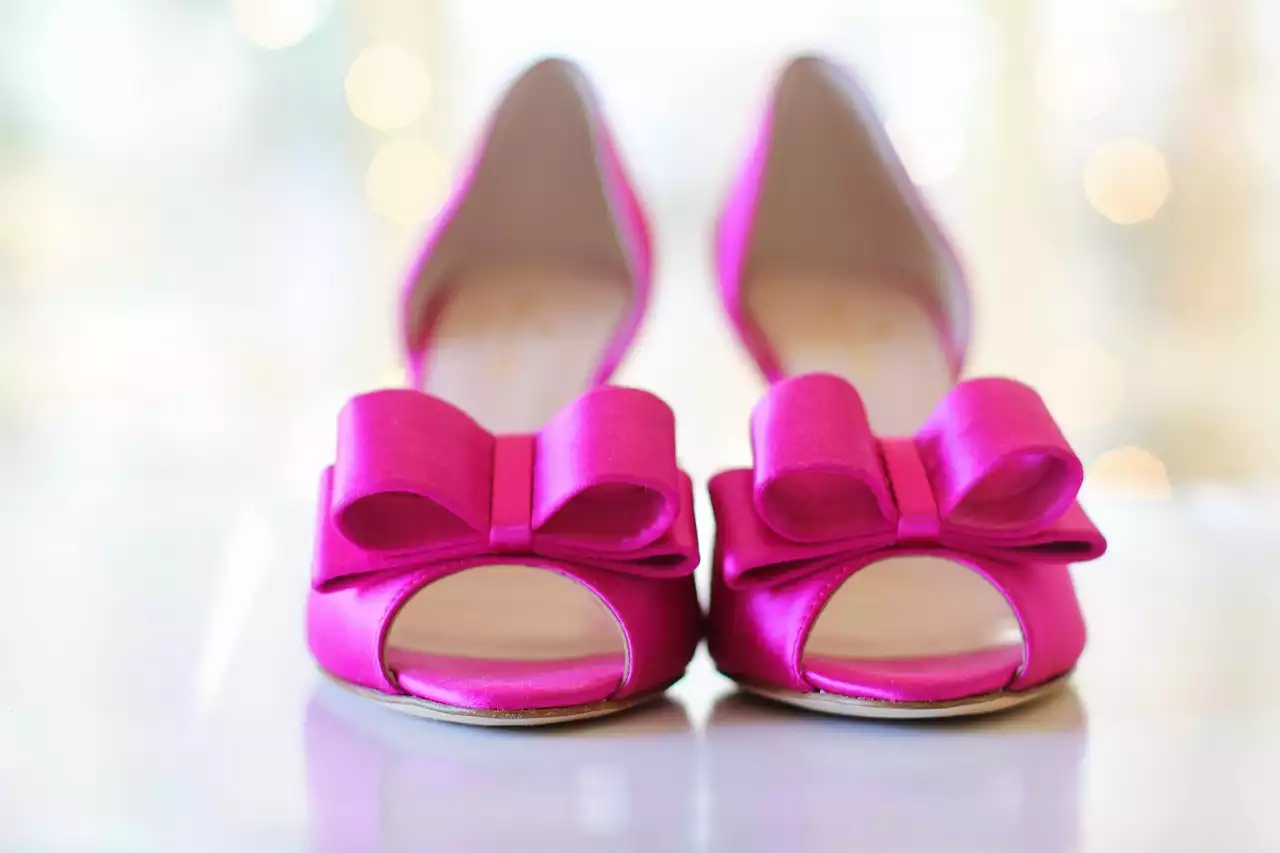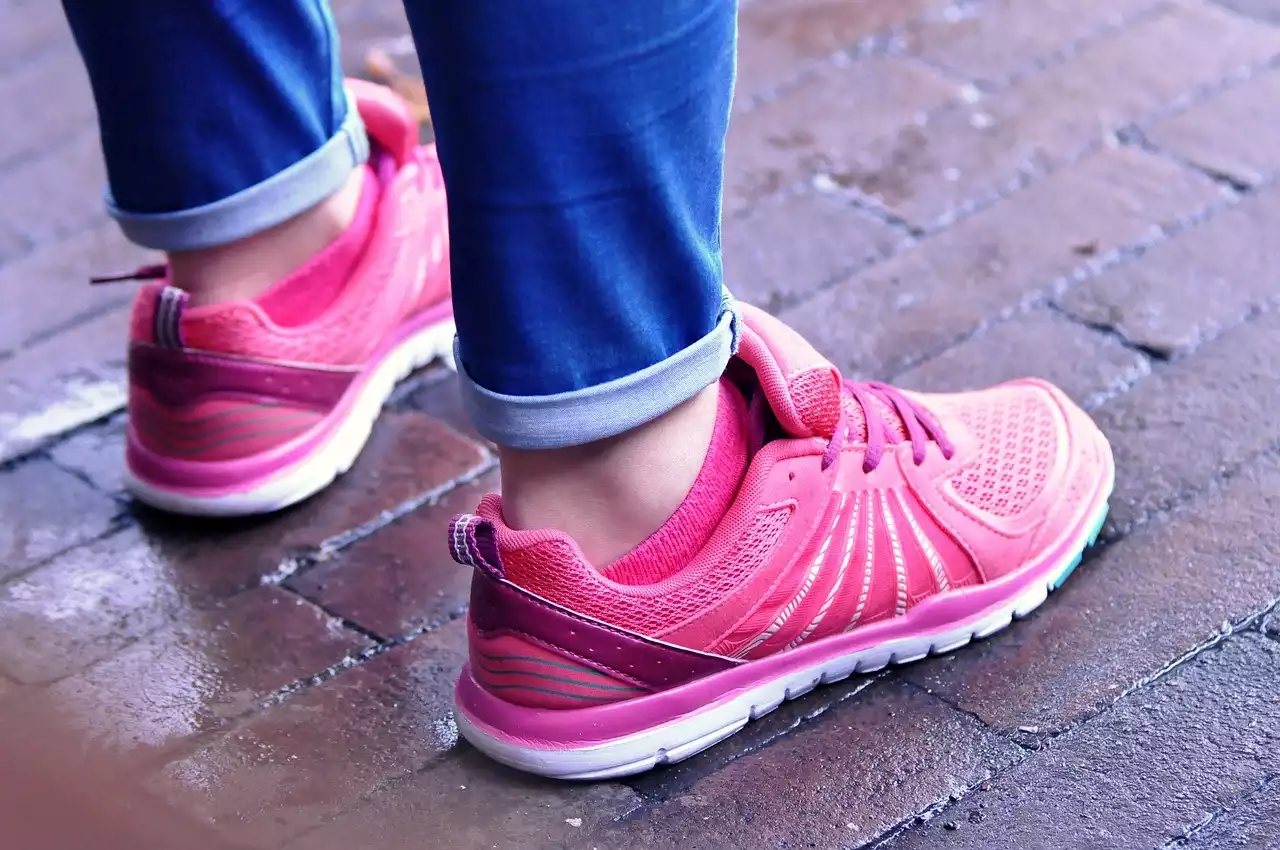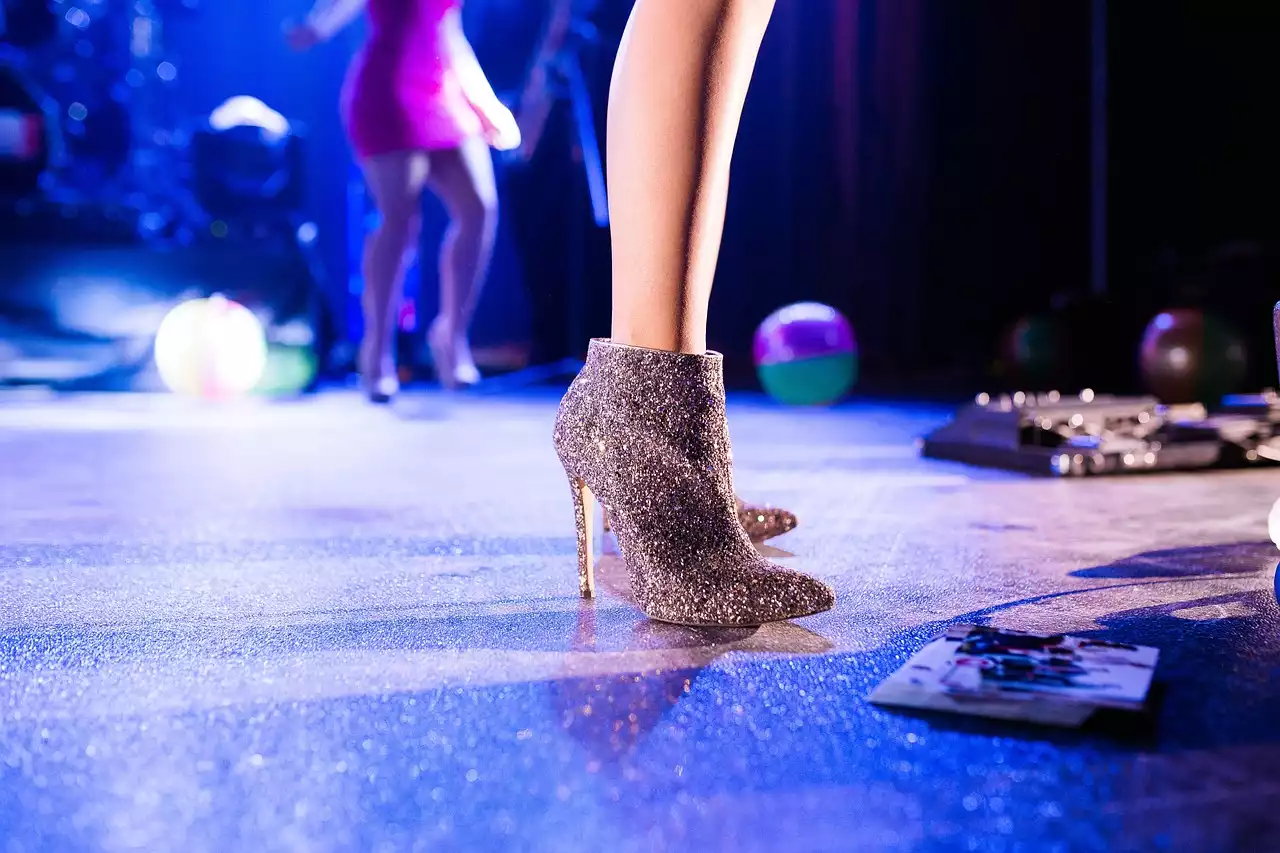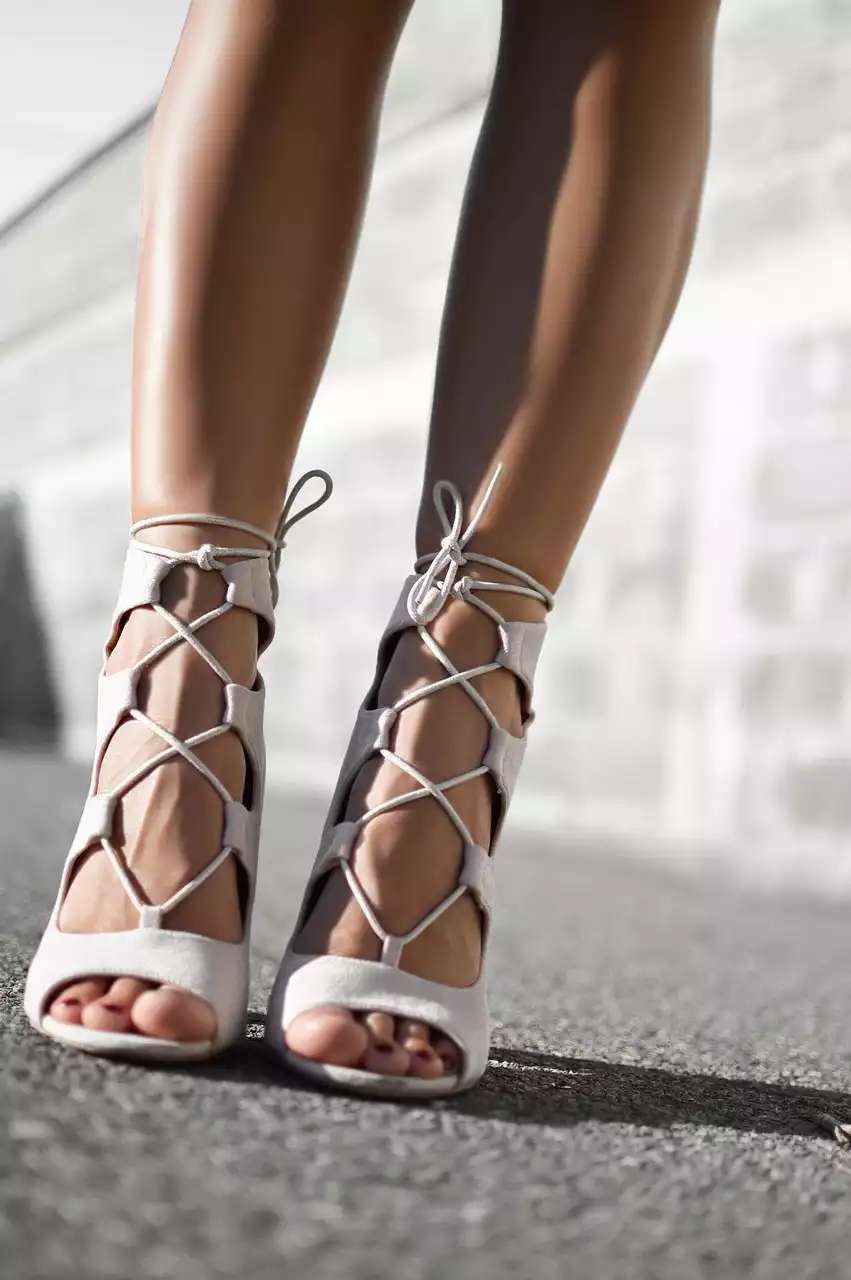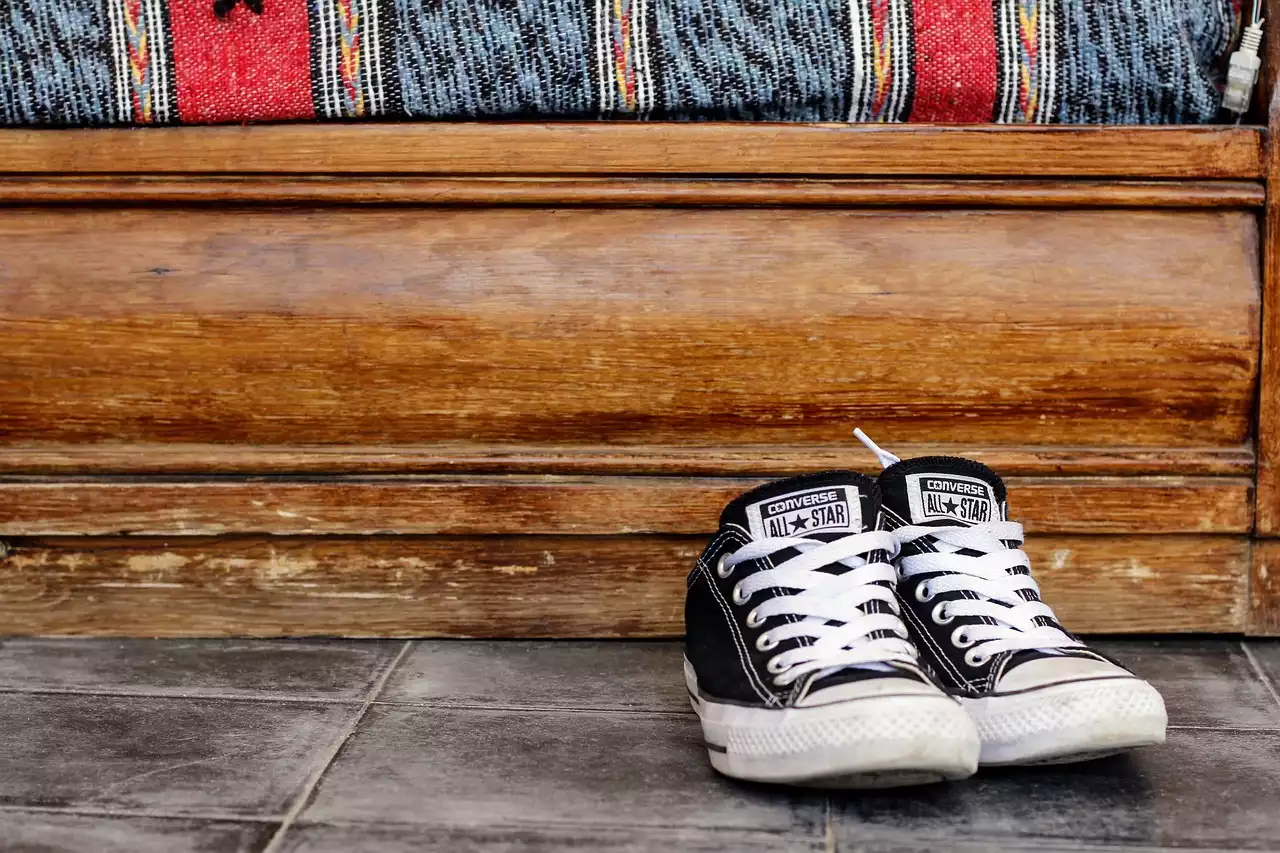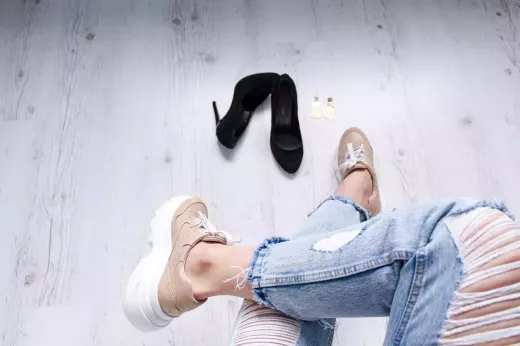The Evolutionary Psychology of Footwear and Attraction
It is said that shoes can be the first thing people notice about us, and this has a lot to do with our evolutionary history. Anthropologists believe that shoes became an important item for humans as we evolved to walk upright. Our feet are vulnerable to injury, especially when walking on rough terrain. Therefore, shoes were invented as a way to protect our feet from harm. The need for protection was especially important for women, who would have needed to protect their feet while gathering food and caring for children.
As humans evolved, footwear became more elaborate and decorative. Shoes became more than just a way to protect our feet, they became a way to signal our social status and attract a mate. In many cultures, women's shoes have been designed to accentuate the shape of the foot and create an alluring gait. High heels, for example, are known to elongate the leg and create a more feminine silhouette. Our love for shoes is partly driven by our desire to appear attractive to others, and this is deeply rooted in our evolutionary history.
The Cultural Significance of Shoes for Women
Shoes have always played an important role in women's fashion. Throughout history, women's shoes have been designed to reflect the latest trends and styles. In some cultures, shoes have even been used to signal a woman's social status. For example, in ancient China, only women of a certain social class were allowed to wear shoes with a raised sole. In Victorian England, shoes were designed to be hidden under long dresses, but this did not stop women from wearing elaborate and decorative footwear.
Today, women's shoes are still an important part of fashion. Shoes can make or break an outfit, and many women spend a lot of time and money searching for the perfect pair. High-end designers like Christian Louboutin and Manolo Blahnik have become household names, and shoes have become a status symbol for many women. The cultural significance of shoes for women cannot be overstated, and this is one of the reasons why we love them so much.
The Emotional Connection to Shoes
Our love for shoes is not just about fashion or status. Shoes can also evoke strong emotions and memories. We often associate shoes with important events in our lives, such as our first pair of high heels, our wedding shoes, or the shoes we wore on a special date. Shoes can also remind us of people we love or have lost. For example, a pair of shoes that belonged to our mother or grandmother can hold a special place in our hearts.
Shoes can also be a source of comfort and security. Many women have a favorite pair of shoes that they turn to when they need a boost of confidence or are feeling down. Shoes can be a form of self-care, and the act of buying new shoes can be a way to lift our mood and make us feel better about ourselves. The emotional connection we have with our shoes is one of the reasons why we are so attached to them.
The Impact of Fashion and Media on Shoe Obsession
Our obsession with shoes is not entirely natural. The fashion industry and media have played a significant role in promoting the idea that shoes are a must-have accessory. Fashion magazines and websites are filled with images of beautiful shoes, and celebrities are often seen wearing the latest designer footwear. This creates a sense of pressure and competition among women to own the latest and most fashionable shoes.
Social media has also contributed to our shoe obsession. Platforms like Instagram and Pinterest are filled with images of stylish shoes, and influencers are often seen promoting the latest footwear trends. This has created a culture of "shoe envy," where women feel the need to keep up with the latest trends and constantly update their shoe collection.
The Science Behind the Pleasure of Buying Shoes
There is actually a scientific reason why buying shoes can be so pleasurable. Shopping for shoes releases dopamine in the brain, which is the same neurotransmitter that is associated with pleasure and reward. This is why buying new shoes can feel like a reward, and why we often get a rush of excitement when we find the perfect pair.
The pleasure of buying shoes is also related to the act of self-expression. We use our shoes to express our individual style and personality, and this can be a source of satisfaction and joy. Shoes are a way to express ourselves without words, and this can be empowering and validating.
The Role of Shoes in Self-Expression and Confidence
Shoes are more than just a fashion accessory - they can also play a role in our self-expression and confidence. Our choice of footwear can signal our personality, our mood, and our attitude towards life. For example, a woman who wears bold and colorful shoes may be seen as confident and outgoing, while a woman who wears classic and understated shoes may be seen as refined and sophisticated.
Shoes can also affect our physical posture and body language. High heels, for example, can make us stand taller and walk with more confidence. This can have a positive impact on our mood and self-esteem. The right pair of shoes can make us feel like we can conquer the world, and this is one of the reasons why we love them so much.
The Dangers of Extreme Obsession with Shoes
While our love for shoes can be harmless and even beneficial, it's important to recognize that extreme obsession with shoes can be a sign of a deeper psychological issue. Compulsive buying disorder, also known as oniomania, is a condition where individuals have an uncontrollable urge to buy things, including shoes. This can lead to financial problems, relationship issues, and other negative consequences.
It's also important to recognize that the fashion industry has a dark side. Many fast fashion brands exploit workers and contribute to environmental destruction, and this can have a negative impact on our mental health and well-being. It's important to be mindful of our consumption habits and to make ethical and sustainable choices when purchasing shoes.
Shoe Trends and Their Psychological Effects
Shoe trends come and go, but they can have a lasting impact on our fashion choices and self-expression. For example, the trend towards comfortable and practical footwear during the pandemic has highlighted the importance of comfort and function in our shoe choices. The trend towards sustainable and ethical fashion has also influenced our shoe choices, as more and more people are becoming aware of the impact of fast fashion on the planet and its people.
Shoe trends can also reflect larger cultural trends and attitudes. For example, the rise of athleisure and sneakers in recent years may reflect a shift towards a more casual and relaxed lifestyle. The trend towards gender-neutral footwear may reflect a growing acceptance of diversity and inclusivity in our society.
The Enduring Love Affair with Women's Shoes
Despite the changing trends and attitudes towards footwear, our love affair with women's shoes is enduring. Shoes have a special place in our hearts and our culture, and they will always be a part of our lives. Our shoes are more than just a way to protect our feet - they are a tangible expression of our personality, style, and mood. With each pair we purchase, we are making a statement about who we are and how we want to present ourselves to the world. And that's why we love them so much.
